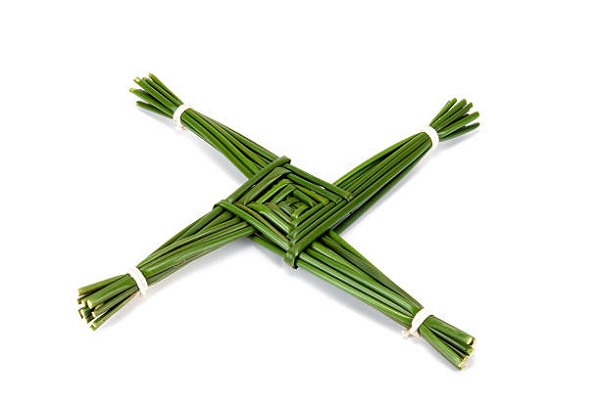
Each year on 1 February, people in Ireland (and those with Irish roots living abroad) celebrate St Brigid’s Day (Lá Fhéile Bride in Irish), which marks the beginning of spring and is becoming an increasingly important date in the Irish calendar.
Speaking to Chronicle.lu, the Irish Ambassador to Luxembourg, Stephen Dawson, explained: “St Patrick's day is the National Day of Ireland, but it is less widely known that Ireland in fact has three patron saints - St Patrick, who brought Christianity to Ireland; St Brigid, who came a generation or so after Patrick and was a prominent religious figure and founder of some important convents; and St Columcille, who took Christianity from Ireland to what later became Scotland, beginning an Irish missionary tradition which spread throughout Britain and much of Europe in the 'Dark Ages'. Most countries have one patron saint, I don't know why we have three - perhaps we couldn't agree on just one!”
This year, taking into account widespread public support in Ireland, the Irish government decided to make St Brigid’s Day a new public holiday - making St Brigid the first Irish female figure to be honoured in this way.
Ambassador Dawson noted that: “The [Irish] Government has for some time been considering adding a new public holiday to the calendar - Ireland has slightly less of these than many European countries".
From 2023, this new holiday will fall on the Monday closest to the traditional date of 1 February (or Friday if 1 February falls on this day). This year, however, it will be held exceptionally on 18 March, the day after St Patrick’s Day, in honour of the efforts of frontline workers throughout the COVID-19 pandemic, as well as those who lost their lives to the virus. "Thursday 17 March (St Patrick's Day) is already a holiday, so this will give the country a four-day weekend as it were, after the long strains of the pandemic”, added the Irish Ambassador.
Regardless of when the public holiday is observed this year, this 1 February is once again an opportunity to celebrate Ireland’s female patron saint as well as the lives and legacies of women in Ireland and around the world.
Background
St Brigid’s Day traditionally marks the arrival of spring in Ireland. Historically, the pagan goddess Brigid was honoured during Imbolc, a Celtic festival celebrated from sundown on 1 February until sundown on 2 February, which marked the halfway point between the winter solstice and the spring equinox. Around the 5th century AD, when Christianity arrived in Ireland, several old pagan traditions were adopted into and changed according to these imported religious beliefs and a new story about Brigid emerged: she was a saint who set up a monastery in Kildare. Although uncertainty persists over whether the pagan goddess Brigid and Christianity’s St Brigid were one and the same, the two figures had much in common; they were both closely linked to animals, fire and healing, for example.
Whilst several customs associated with St Brigid’s Day have disappeared over the years, some, such as making St Brigid’s crosses (pictured), persist; others are seeing a revival in Ireland, for instance the “Biddy Boy” procession, which sees adult men dressed in costumes carry a small straw doll called a Brideóg as they go around their towns.
Discussing how St Brigid's Day celebrations have changed in recent years, Ambassador Dawson noted: “When I was a boy, St Brigid's Day (and indeed St Patrick's Day) was primarily a religious feast day, and its most notable feature was the making of St Brigid's crosses from reeds or grass. And various folk traditions such as leaving items of clothing outside overnight to be blessed by St Brigid”.
“But in recent years many people in Ireland have started to take St Brigid's day specifically as an opportunity to celebrate all the various female aspects of life, to focus attention on women's issues, and to pay tribute to the standard bearers and role models who have helped advance the position of women in society towards greater equality. This is something which has gained momentum really in just the last couple of years”, he continued. “So the Government designation of St Brigid's day as a national holiday is a recognition of what you might call a grassroots or popular movement to celebrate Irish women on that day".
Celebrations in Luxembourg
Regarding how the Irish community in Luxembourg is celebrating this feast day in 2022, the Irish Ambassador explained: “Here at the Embassy we shall mark the day on social media, to bring this to people's attention. And we have invited children of 12 and under to send us stories about women who have inspired them in their lives. We have really enjoyed reading or hearing the entries we have received, from both older children and very young. Some have chosen well-known female role models, and others have chosen their mothers, teachers, big sisters, etc. It has been very touching to red these tributes, some with accompanying pictures”.








